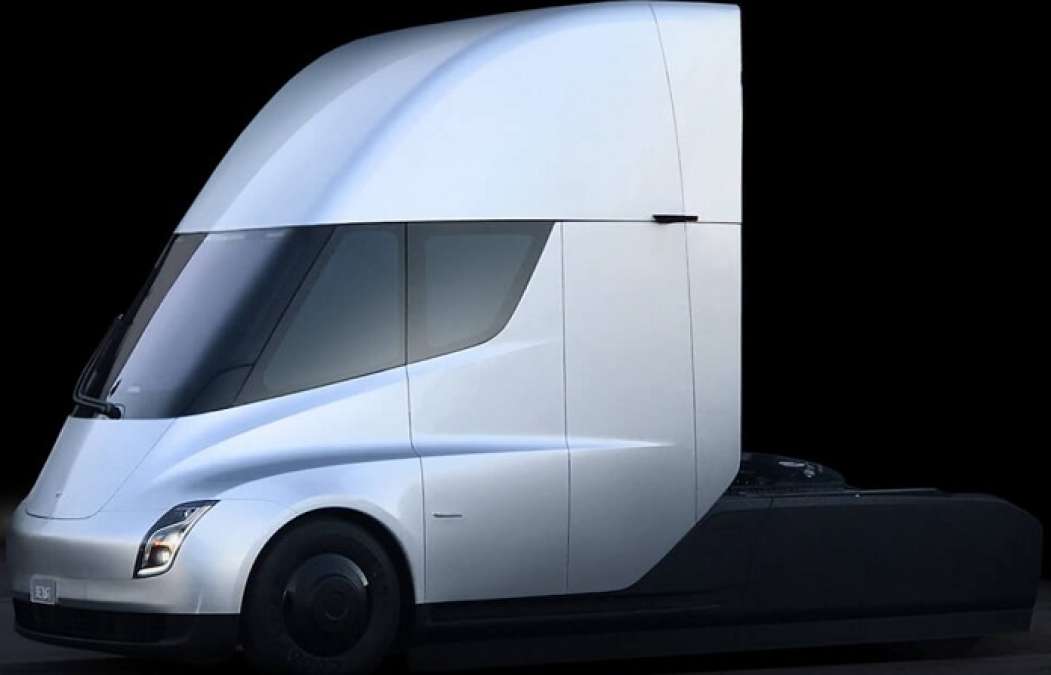
Electric semi trucks offer reduced emissions and operating costs, but they also face limitations in range and charging infrastructure. The rapidly advancing technology presents both opportunities and challenges for the transportation industry.
As the push for sustainability gains momentum, electric semi trucks are emerging as a viable alternative to traditional diesel-powered vehicles. With lower maintenance and operating expenses, businesses can potentially achieve significant cost savings. However, the limited range of electric semi trucks may pose challenges for long-haul transportation.
In addition, the current infrastructure for charging stations needs further development to support widespread adoption. Despite these obstacles, the evolution of electric semi trucks signifies a promising shift towards more sustainable and efficient transport solutions.
Navigate As You Want:
Advantages Of Electric Semi Trucks
Electric semi trucks offer numerous advantages, including reduced emissions, lower fuel costs, and quieter operation compared to traditional diesel trucks. Additionally, electric semis have the potential to lower maintenance expenses and improve overall efficiency for businesses.
Reduced Emissions:
Electric semi trucks contribute to a cleaner environment by emitting zero tailpipe emissions. This benefits not only the air quality but also reduces the overall carbon footprint. With the increasing focus on sustainability and reducing greenhouse gas emissions, electric semi trucks are a step in the right direction.
Cost Savings:
Switching to electric semi trucks can result in significant cost savings. Electricity is generally cheaper than diesel fuel, resulting in lower fuel costs. Furthermore, electric trucks have fewer moving parts, which means lower maintenance and repair costs. This can result in substantial savings over the lifetime of the vehicle.
Lower Maintenance:
Electric semi trucks have fewer components compared to traditional diesel trucks. With no complicated internal combustion engines, spark plugs, or oil changes to worry about, the maintenance requirements for electric trucks are significantly reduced. This not only reduces maintenance costs but also minimizes downtime, improving overall efficiency.
Disadvantages Of Electric Semi Trucks
Electric semi trucks have their advantages, but they also come with some drawbacks. These include limited driving range, longer charging times, and the need for an extensive charging infrastructure. Additionally, the upfront cost of electric semis is higher than their diesel counterparts.
Nonetheless, ongoing advancements in technology are addressing these challenges.
| Disadvantages of Electric Semi Trucks |
|---|
| Limited Driving Range Electric semi trucks often have a limited driving range compared to traditional diesel trucks, which can impact their flexibility and suitability for long-haul journeys. Charging Infrastructure The availability of charging stations for electric semi trucks is currently limited, leading to potential downtime and delays during long-haul trips. Higher Initial Costs Electric semi trucks generally have higher initial costs compared to traditional diesel trucks, which may pose financial challenges for fleet operators. |
Impact On The Environment
Electric semi trucks have the potential to reduce carbon footprint by eliminating emissions. This can lead to improvement in air quality, resulting in less pollution and healthier communities.

Credit: www.truckinsight.com
Economic Considerations
Electric semi trucks offer numerous benefits compared to traditional diesel-powered trucks.
One of the major advantages is the significant fuel savings that electric trucks can provide. With the cost of diesel fuel being a major expense for fleet operators, switching to electric trucks can help save a considerable amount of money in the long run.
In addition to fuel savings, government incentives are also available to encourage the adoption of electric trucks. These incentives can include tax credits, grants, and other financial benefits that can help offset the higher upfront costs of purchasing electric semi trucks.
Technological Challenges
Technological challenges play a crucial role in the pros and cons of electric semi trucks. Battery technology, for instance, is a significant factor to consider. The charging time, in particular, poses a challenge for electric semi trucks. With conventional diesel trucks, refueling takes a few minutes, but charging an electric truck’s battery can take several hours. This extended charging time may result in significant downtime for drivers and impact overall efficiency.
On the positive side, advancements in battery technology are constantly improving, leading to faster charging times. Manufacturers are working on high-capacity batteries that can be charged in a shorter period. Additionally, the development of fast-charging infrastructure may alleviate some concerns regarding charging time. As technology continues to evolve, it is expected that the battery charging process for electric semi trucks will become more efficient and comparable to refueling conventional trucks in the future.

Credit: www.torquenews.com

Credit: drstrucks.com
Frequently Asked Questions For Pros And Cons Of Electric Semi Trucks
Are Electric Semi Trucks Cost-effective In The Long Run?
Yes, electric semi trucks can be cost-effective in the long run. They have lower operating costs compared to traditional diesel trucks, with savings on fuel and maintenance. Moreover, the increasing availability of charging infrastructure makes long trips more feasible.
What Are The Main Benefits Of Electric Semi Trucks?
Electric semi trucks offer numerous benefits. They have zero tailpipe emissions, reducing air pollution and greenhouse gases. They are also quieter and provide a smoother driving experience. Additionally, they can significantly reduce dependence on fossil fuels, reducing the impact on the environment.
Do Electric Semi Trucks Have Enough Power For Heavy Hauling?
Yes, electric semi trucks are designed to have enough power for heavy hauling. They are equipped with powerful electric motors that can deliver high torque and towing capacity. With advancements in battery technology, their range and performance continue to improve, making them suitable for long-distance hauling.
Are There Any Drawbacks To Electric Semi Trucks?
While electric semi trucks have many advantages, there are a few drawbacks to consider. They have limited charging infrastructure compared to traditional refueling stations, which could affect long-haul operations. Additionally, the initial purchase cost of electric trucks can be higher, although savings on fuel and maintenance help offset this factor.
Conclusion
Electric semi trucks offer several advantages such as reduced emissions, potential cost savings, and quieter operation. However, there are also drawbacks like limited charging infrastructure and shorter driving ranges. It is clear that electric semi trucks have the potential to revolutionize the transportation industry, but further research and development is needed to address the limitations and fully harness their benefits.
Embracing this technology requires a careful balance of considerations and a systematic approach towards implementation.




